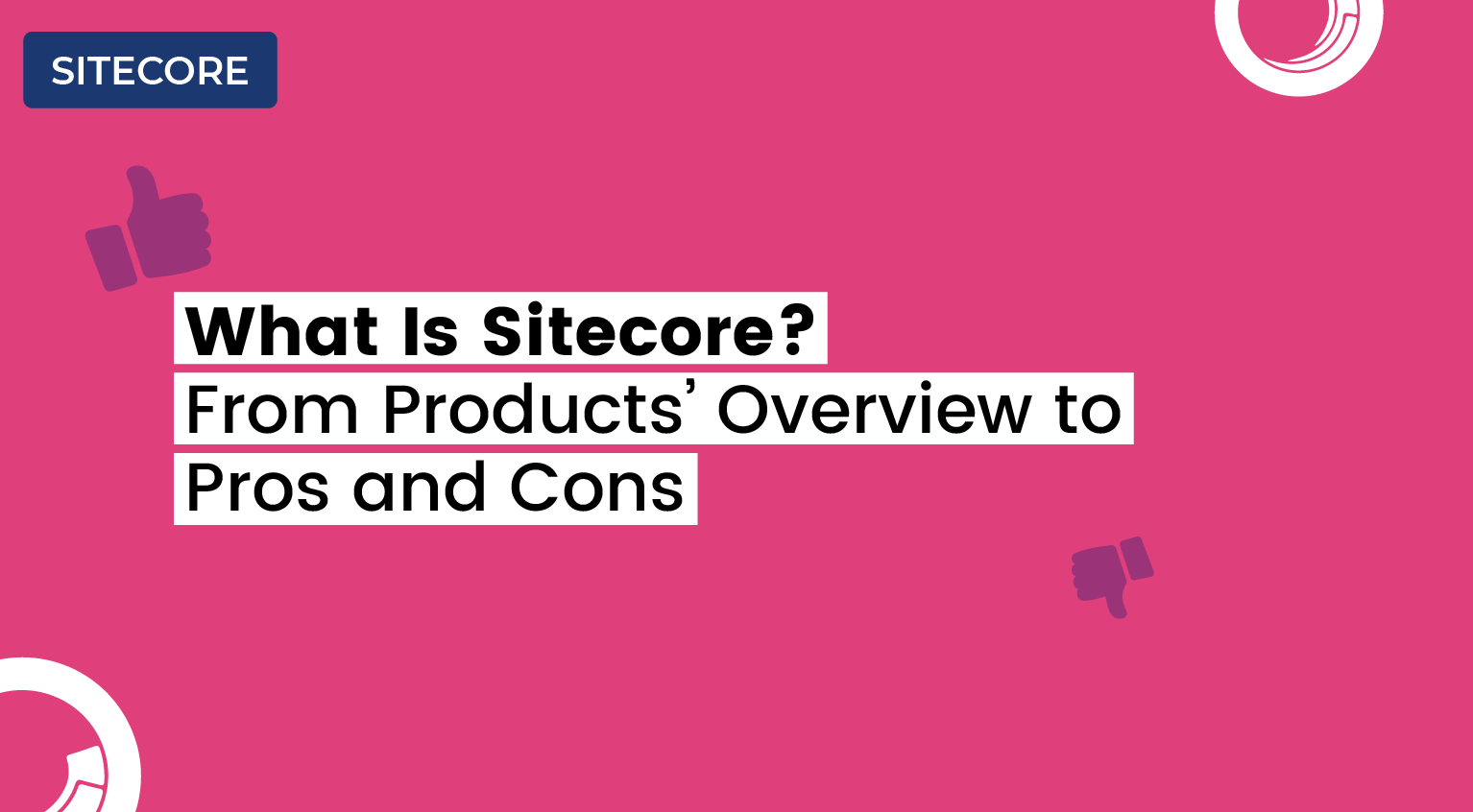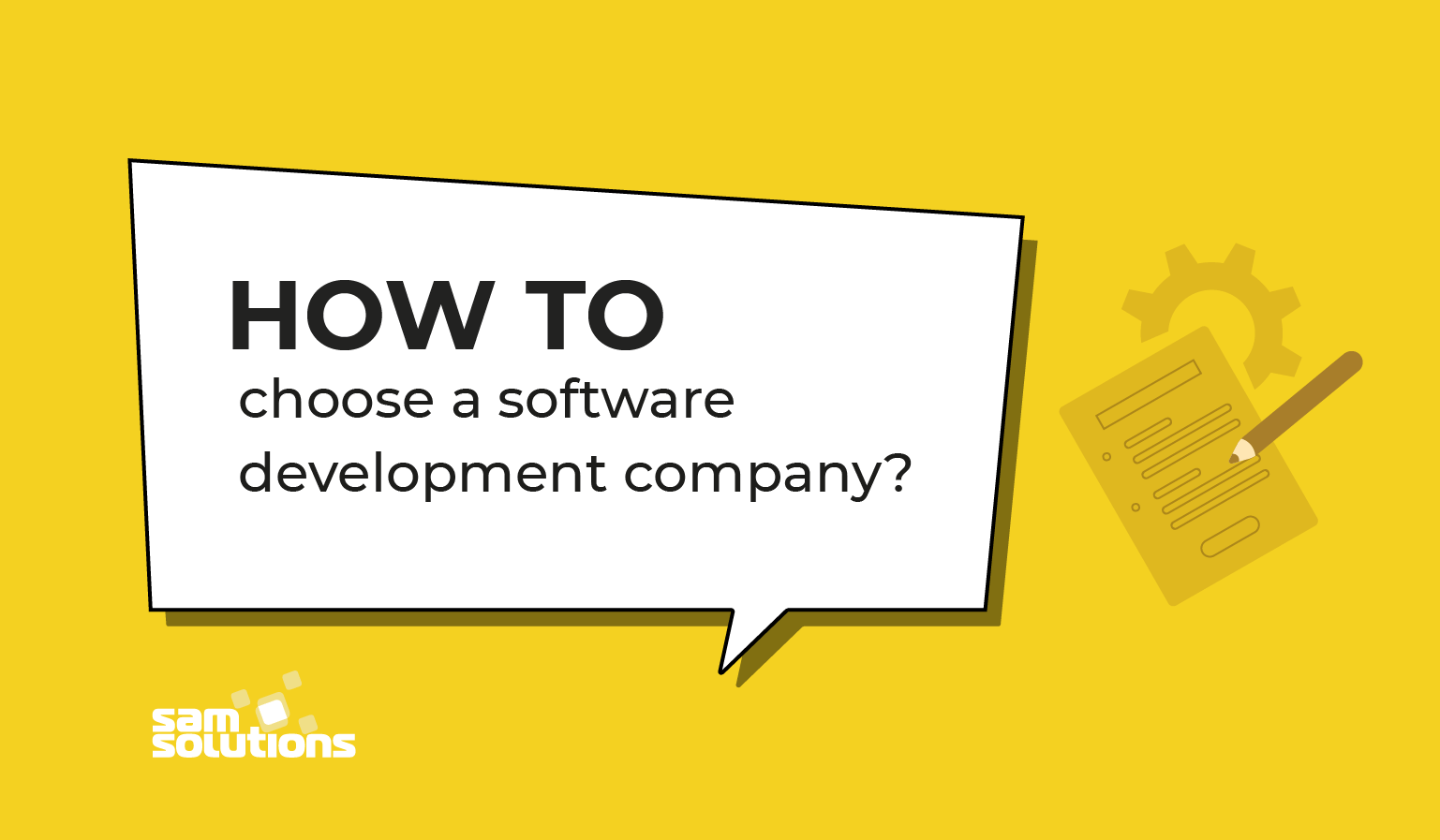Hiring a Sitecore agency comes with several expectations, especially when they’re a silver, gold, or platinum provider with multiple big-name clients. First, your Sitecore agency should have an innate knowledge and deep understanding of the platform and its features.
Then, the team should be able to not only deliver upon the promises they’ve made for Sitecore implementation, management, and optimization but adapt to your changing needs.
In short, your Sitecore agency should ensure you get as much value out of the Sitecore platform as possible. Unfortunately, this does not always occur.
Whether you’ve noticed trouble or not, there are multiple signs your Sitecore team might be failing to consider your needs or failing to utilize best practices during implementation.
Here, we’ve listed the most common problems, as well as how a reliable Sitecore agency can help you avoid each.
1. You’re Running an Outdated Version of Sitecore
- Tip: Your Sitecore agency should ensure that you are running the most current version of Sitecore to avoid critical issues.
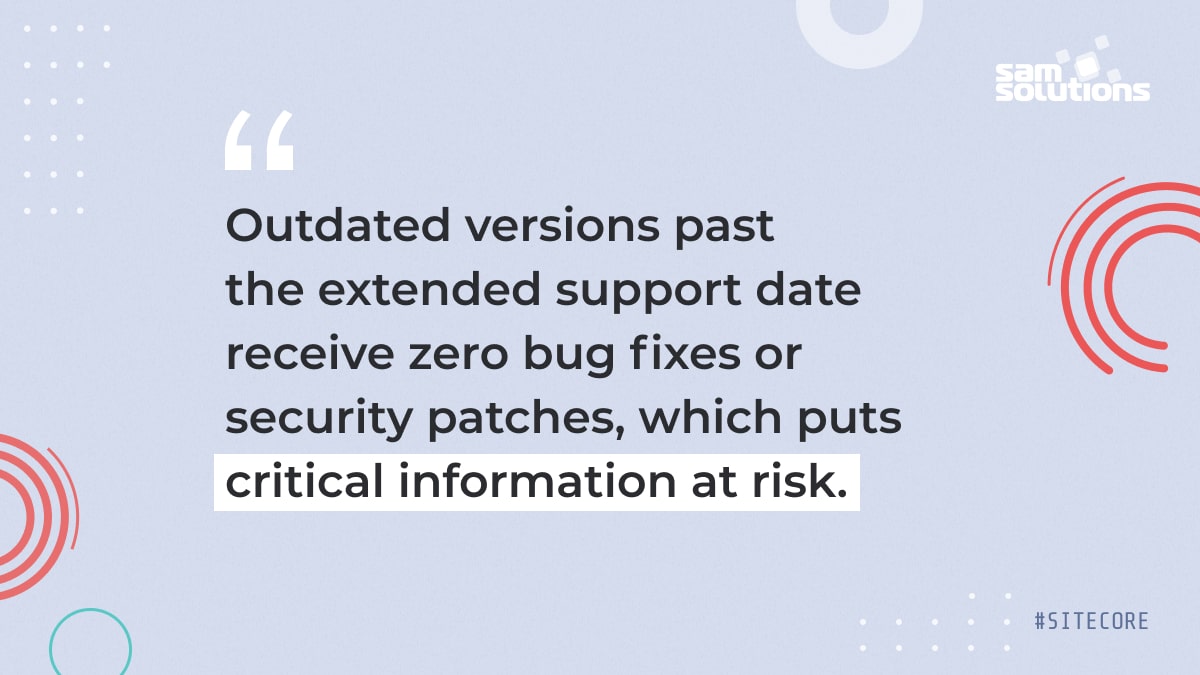
Software evolves over time, and the Sitecore platform is no different. For example, Sitecore released version 10 in August of 2020, with mainstream support for version 9 ending in December of 2020.
During the platform’s mainstream support cycle, you can depend on Sitecore to implement patches for security flaws, conduct bug fixes, and mitigate any issues that stem from problems with the platform.
Later, during the extended support cycle, Sitecore will no longer address compatibility issues; the company will continue to provide a fix, but the patch can come with attached costs for implementation.
Perhaps most critically, outdated versions past the extended support date receive zero bug fixes or security patches, which puts critical information at risk. Any compatibility issues are yours to handle and can require extensive resources to resolve—if a resolution is possible.
Failure to migrate to a supported version of Sitecore can ultimately cost you time, money, even valued clients who may bear the brunt of your security issues.
A reliable Sitecore agency ensures that your Sitecore version remains up to date and helps you manage major migrations to a new version—thus avoiding financial losses and retaining clients.
2. Your Sitecore Implementation Occurred Without a Sitecore Architecture Document
- Tip: Your Sitecore agency should create a Sitecore Architecture Document for every project.
Whether you’re enhancing an existing site or launching a completely new one, each Sitecore project should be accompanied by a Sitecore Architecture Document.
This critical document helps ensure that you, your Sitecore agency, and any other parties affected by the implementation agree with implementation and launch. In it, your Sitecore team should detail what content will be created, how it will be structured, how it can be edited, and any other necessary pieces of information for the project.
Unfortunately, if your Sitecore agency rushes implementation or decides to use shortcuts to hasten the project, the Sitecore Architecture Document is often the first thing on the chopping block.
Without this vital information, miscommunication can erupt—leading to design misalignments, unmanageable content, bugs during launch, and a host of other issues. In turn, the entire project can suffer ill effects of this miscommunication.
A reliable Sitecore agency will provide all necessary documentation, including a Sitecore Architecture Document, to ensure the project continues to your specifications.
3. Your Projects Experience Delays and Bugs
- Tip: Your deployments should proceed relatively smoothly, with minimal bugs and unforeseen issues.
When you’re readying for a deployment, the importance of testing and verification of all code involved cannot be overstated.
Best Sitecore practice is to deploy all new code to a quality assurance or test environment, where you can test, verify, and accept all changes or new features before deploying to the live environment. Unfortunately, when implementation teams begin to cut corners, testing does not always occur.
If you’ve begun to experience multiple delays, bugs, and other unforeseen issues upon deployment, chances are your agency’s testing is either lacking or not present.
When QA and testing environments are insufficient, you can likely assume their knowledge of the Sitecore environment, and best practices are minimal. Agencies without this knowledge are seriously limited in their ability to manage your site successfully.
A reliable Sitecore agency will create a comprehensive QA and testing process to identify and mitigate issues before deployment. Also, a good agency will work with you and any other stakeholders to verify acceptance before going live.
4. Your Site Loads Slowly
- Tip: Site load speeds over two seconds can cost you clients.
Site load speeds are crucial to a site’s rankings on a search engine’s SERP, and even more important to keep essential users from abandoning a website. As a result, you need your site to load as quickly as possible.
While many potential issues can increase your page load times, search functions, menu generation, and images are among the most common sources of speed issues.
Fortunately, a knowledgeable Sitecore agency can address these issues. However, if your site continues to load slowly and your agency claims nothing can be done to enhance speed, they may lack the ability—or the desire—to identify and fix the issue.
A reliable Sitecore agency has a deep understanding of the Sitecore platform and its features and can address server configuration issues with best practices. In addition, a good team of experts will implement performance monitoring and benchmarking tools to continue to address site speeds in the future.
5. It Takes Ages to Get New Functionality
- Tip: While Sitecore deployments can take time, adding new functionality should not cause a series of delays.
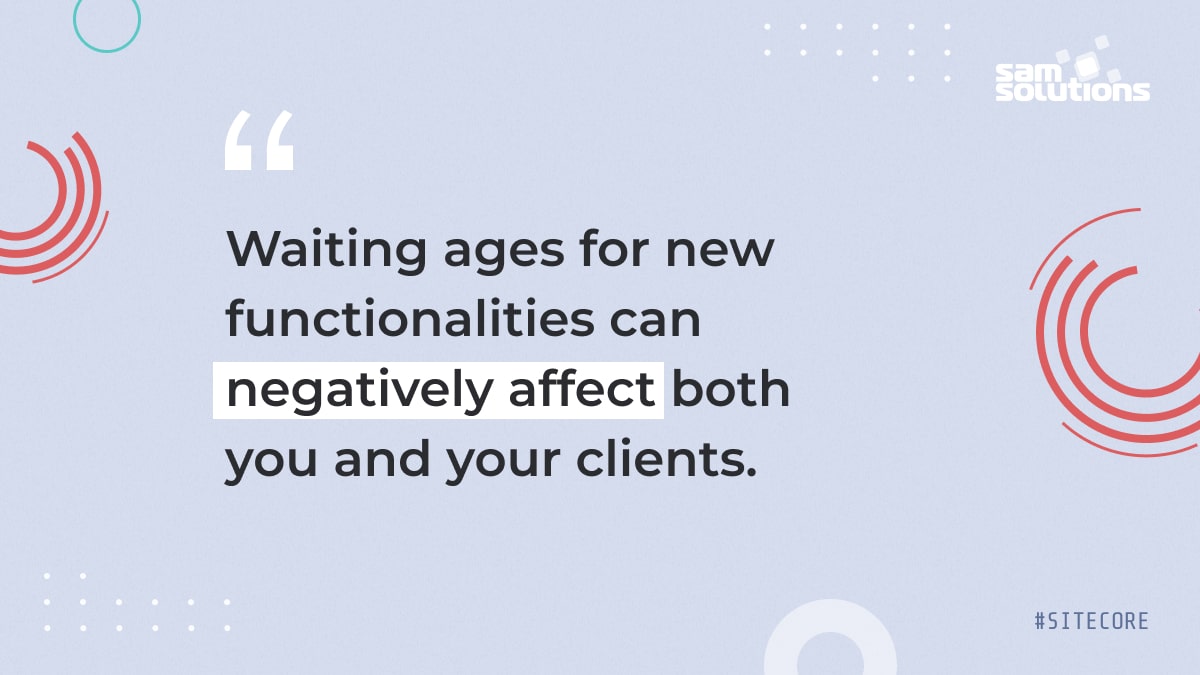
Adding new functionality to your Sitecore site is one of the most critical management functions your Sitecore agency can have. The ability to incorporate search functionality, custom fields, modules, and more can mean the difference between a generic site and a customized Sitecore experience for you and your clients. However, when you’ve decided to add functionality, you need to implement it quickly.
Increased wait times for new functionality can indicate that your Sitecore agency lacks the in-depth knowledge of the platform required to implement functionality in a timely fashion. Alternatively, the team may be struggling to identify and address bugs or unforeseen issues with the functionality.
Whatever the case, waiting ages for a new functionality can negatively affect both you and your clients.
A reliable Sitecore agency has the knowledge and best practices required to implement new functionalities swiftly and without excessive delays, bugs, or issues.
6. You Lack the Proper Training to Use Your Sitecore Site
- Tip: Personalized training on your Sitecore site can give you the self-sufficiency you need to manage your site with confidence.
One of the key characteristics of the Sitecore platform is that no two sites created on it are the same—a well-crafted Sitecore site is designed according to your needs. It takes your business’s processes, requirements, information architecture, desired user experience, and more into account first.
As a result, learning how to use your site is a process best done individually so that your Sitecore agency can educate you regarding the many unique features of your site.
If you haven’t received a training guide that provides step-by-step information and illustrations regarding your site use, you may want to raise the issue with your Sitecore agency. These knowledge gaps will prevent you from utilizing your site properly, and can even begin to show themselves when clients and stakeholders experience issues with your site.
A reliable Sitecore team provides online, personalized training so that you develop a deep understanding of how to use your site before live deployment—and feel confident in your ability to do so.
7. There Are Multiple Exceptions in Logs, and You Don’t Know How to Deal With Them
- Tip: Training in exceptions management and Azure Application Insights should allow you to deal with exceptions seamlessly.
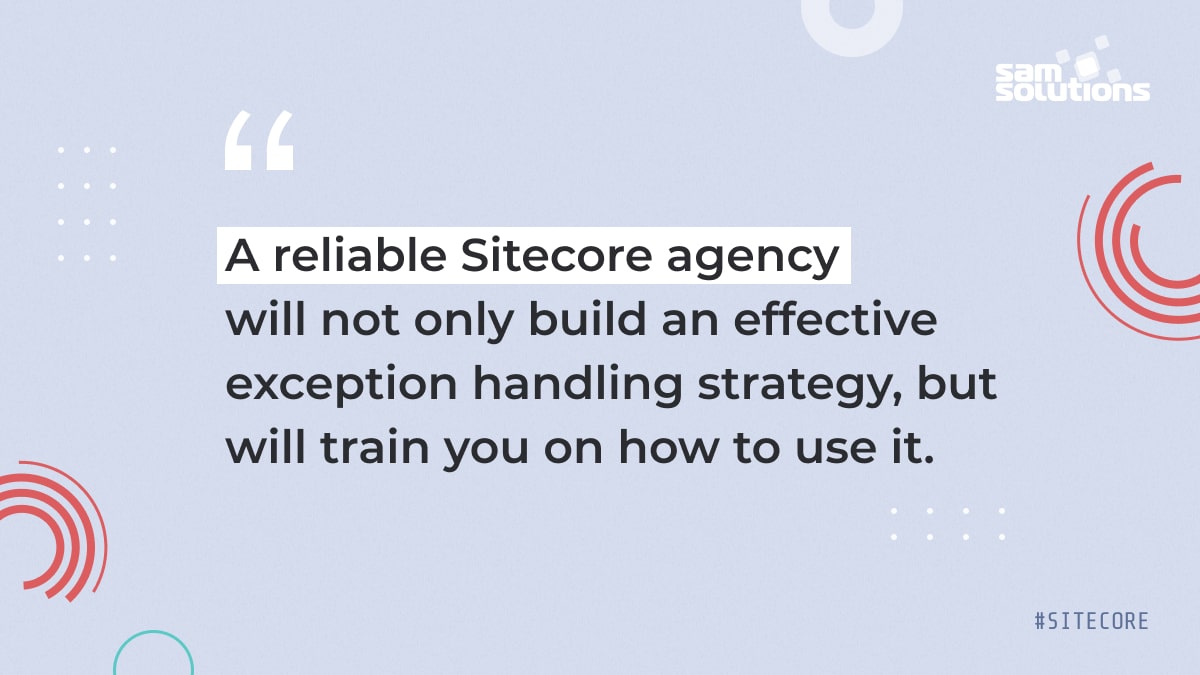
Solutions built with numerous mistakes can cause a variety of issues for clients. Even a few misconfigurations in entries can cause the client to see multiple exception entries in log files. If you’re unsure how to deal with them, you’re faced with how to admit to the client that you’re unsure how to manage your site.
Of course, a site visitor should not be noticing issues such as exception log entries before the site engineers that created the site. However, if your Sitecore agency has not built an exception handling strategy into the solution, that’s precisely what will happen.
Building a strategy into your solution will help you be aware of exceptions before your site visitors notice them, and can help you fix them on the fly.
A reliable Sitecore agency will not only build an effective exception handling strategy but will train you on how to use it, including the specific actions you need to take during a particular exception entry.
Besides, an excellent Sitecore team will be able to setup Azure Application insights for quicker identification and analysis of errors and warning messages, identified by roles and Sitecore instances.
8. You Are Unable to Manage Content
- Tip: You should not be forced to be dependent on your Sitecore agency to manage or update site content.
You’ve invested in a content management system so that you can manage your content. The Sitecore platform is designed to give you the ability to manage each piece of content on the site—it’s likely why you chose to invest in Sitecore in the first place.
However, as mentioned, some Sitecore agencies fail to deliver the thorough training that’s necessary for managing content.
Your agency should:
- Implement Sitecore’s modular content structure
- Configure your site to utilize Experience Editor, so adding and editing is easy
- Implement user roles to ensure the proper individuals can edit content
- Review and test content for proper functioning before deployment
A reliable Sitecore agency utilizes all these steps to ensure you can easily add and edit content independently and provides thorough, step-by-step training regarding how to do so.
9. The Experience Editor Interface Is Not Present or Does Not Function As Expected
- Tip: The Experience Editor interface enables you to edit content in-line, giving you the ability to experience the content on the page itself before going live.
As mentioned, you should have the ability to personalize and manage your content within your Sitecore site.
Currently, Sitecore best practices dictate the addition of the Experience Editor interface and the correct implementation of the site to allow Experience Editor compatibility. This compatibility gives you the ability to edit in-line so you can see what your page will look like before making changes.
Unfortunately, some Sitecore agencies implement sites without including the Experience Editor interface to keep implementation costs low.
If your site was implemented within the last few years and you have not received training to utilize Experience Editor—or if your implementation documents do not mention Experience Editor—your site likely lacks the interface.
A reliable Sitecore agency always implements Experience Editor and provides the proper training necessary for independent use; a reliable agency may be able to address your current lack of Experience Editor.
10. You’re Unable to Add New Site Sections Independently
- Tip: If you’ve requested the ability to build out new site sections on your own, you should be able to do so without assistance from your Sitecore agency.
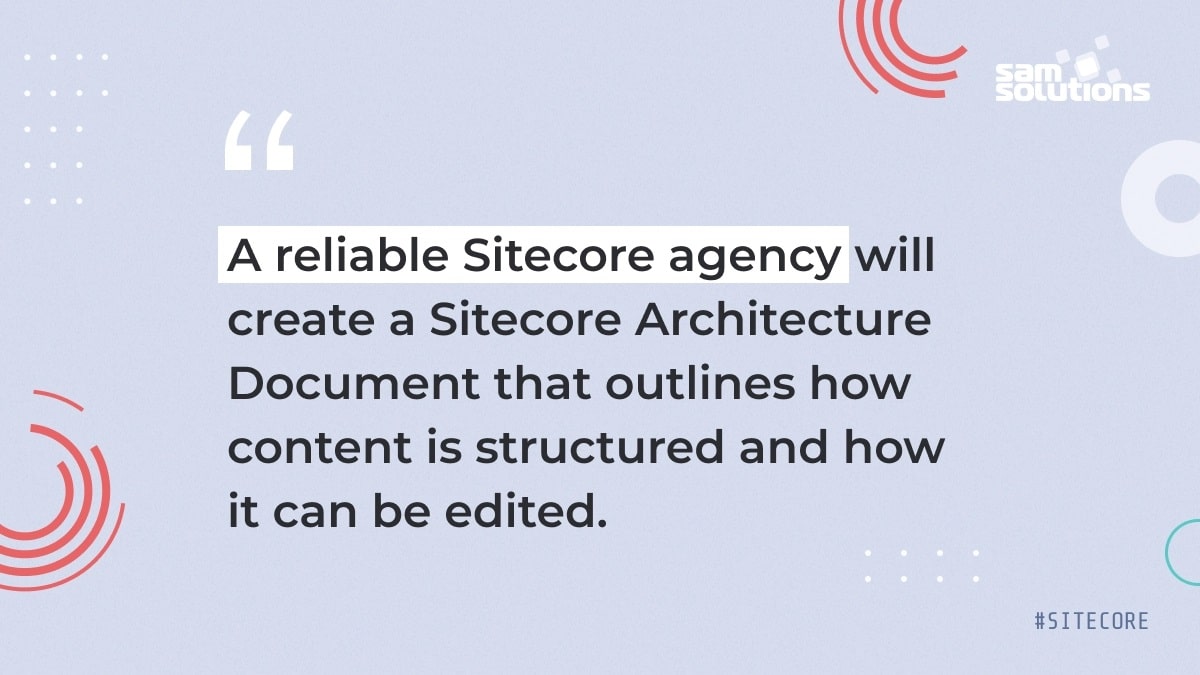
Sitecore is designed to utilize individual, reusable modules to make building out new site sections relatively simple. This gives you the freedom to add site sections on your own, without remaining dependent on your Sitecore agency.
If you find yourself unable to do so, you should have a discussion with your Sitecore agency. Even if you experience some ability to build new sections, but the modules you have at your disposal are limited (or if you can only place modules on certain pages), you likely want to understand why your Sitecore team couldn’t do that.
These issues indicate that your agency may not have developed your Sitecore Architecture Document thoroughly, does not follow best practices, or could not implement your site the way you requested.
A reliable Sitecore agency creates a Sitecore Architecture Document that outlines how content is structured and how it can be edited, then gives you access to a full array of tools and components that enable you to create the site sections you need.
11. You Can’t Conduct Your Own Testing
- Tip: If you desire to conduct your own A/B or multivariate testing, your Sitecore agency should give you the ability and provide you with proper training.
Within the Sitecore Experience Editor, you should be able to perform your own A/B and multivariate testing at your discretion. Using it, you can test content on any page on your site without oversight by your agency, and optimize content before deployment.
However, the ability to do so requires proper implementation of Experience Editor and adequate training to conduct quality testing. If your Sitecore agency has failed to provide either, they are likely cutting corners when it comes to your implementation.
A reliable Sitecore agency will enable you to conduct your own testing if it is a priority for you, and will provide thorough training regarding the process.
12. You Aren’t Using Sitecore Marketing Automation, Advanced Personalization, or Email Experience
- Tip: Sitecore is not just a simple Content Management System, it’s a Digital Experience Platform that provides very unique and powerful tools for your digital marketing teams to truly increase conversions and bring more business through digital channels.
Although it’s frequently suggested as an alternative to many content management system (CMS) solutions on the market, Sitecore offers a far greater number of features, analytical functions, and applications/tools than the average CMS.
Sitecore developers define the platform as a digital marketing system, or DMS, that incorporates the traditional CMS model with a host of other data intelligence and automation technologies – with the resulting insights allowing you to manage and fully optimize the content on your website to reach the right users at the right times.
Not using these features may indicate that your Sitecore agency doesn’t have the proper experience to build your implementation project around your specific marketing and business needs.
From the very first days of the project, a reliable Sitecore agency will work with the client business to demonstrate Sitecore as a business tool (not a mere CMS), and will map existing marketing processes with relevant platform features.
13. You Feel You Aren’t Receiving Adequate Value for Your Partnership Investment
- Tip: The true value of your Sitecore partnership is difficult to nail down. However, if you have noticed one or more of the signs listed above and simultaneously feel like you’ve been overcharged, you likely have a problem.
Capable Sitecore management doesn’t come free of charge. You should view your Sitecore partnership as an investment into your business—and it is often true that you get what you pay for.
However, if you feel your Sitecore agency has implemented an unfair minimum spend requirement, or has underdelivered and overcharged, seeking a new agency is likely in your best interests.
A reliable Sitecore agency builds trust with you to determine how to provide you with the best value. Your team will work with you to ensure that all costs are in-budget, and all features are delivered in a timely manner. Together, you ideally establish a long-term relationship in which you receive the full value from your Sitecore investment.
What Should You Do if You Have Concerns?
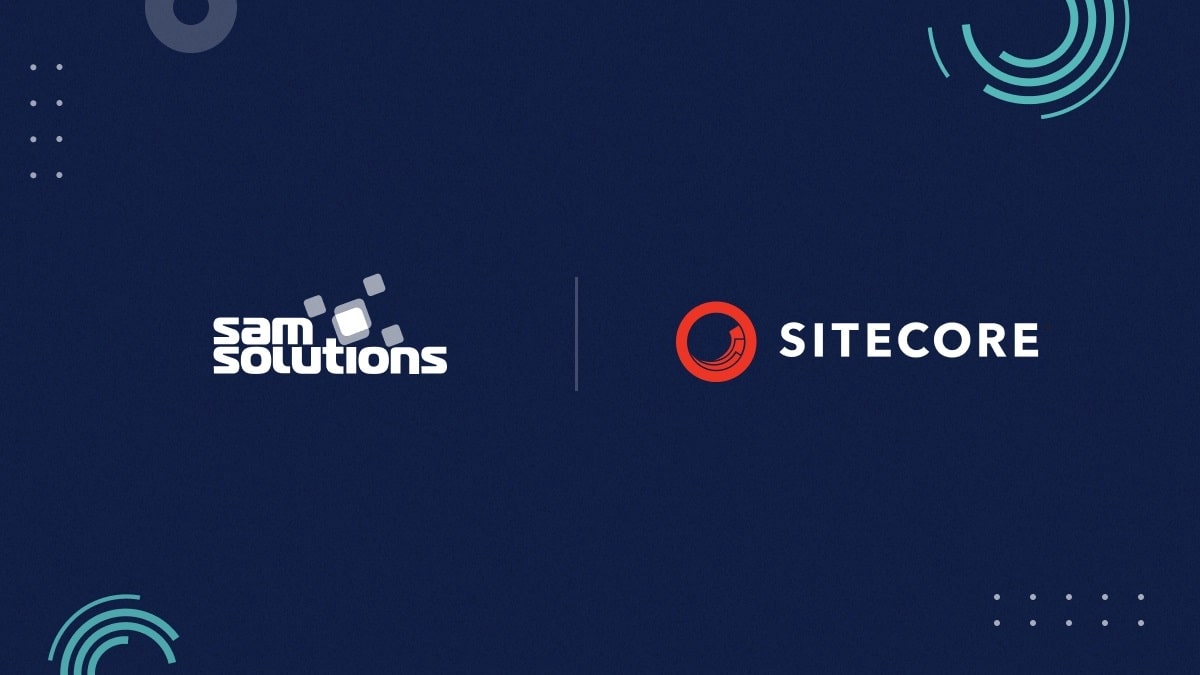
If you’ve noticed one or more of the above signs of a failing Sitecore partnership, it may be time for a change.
You must gather information about your Sitecore implementation so you can make an informed decision regarding your partnership. Perform a Sitecore audit to assess any current issues, predict future problems, and determine which actions are necessary to help you meet your business goals.
With over 30 years in the industry and more than 10 years in Sitecore implementations, SaM Solutions has built a strong reputation as a reliable, experienced Sitecore agency.
Our global Sitecore and CMS team has developed outsourcing partnerships with numerous multinational companies such as Coveo, Toradex, FPX, and Oracle, among many others.
